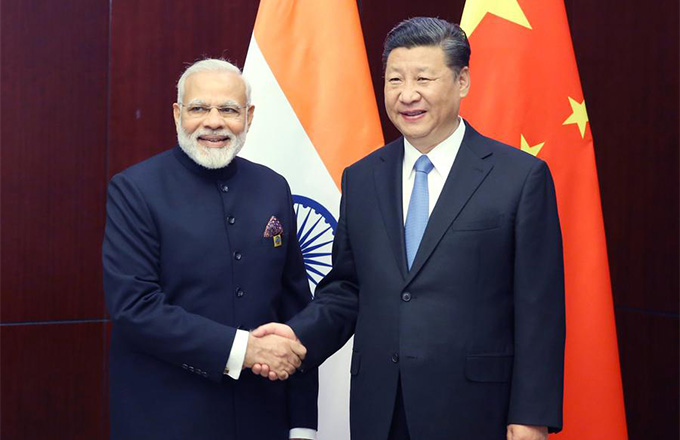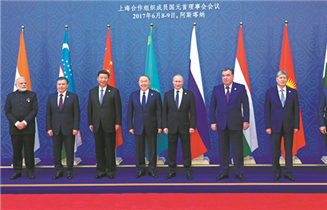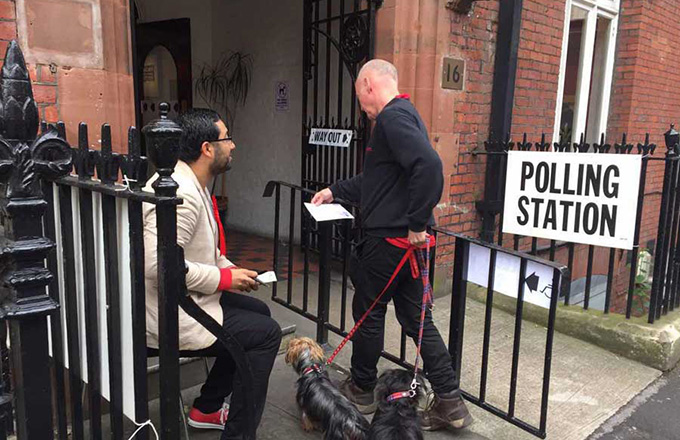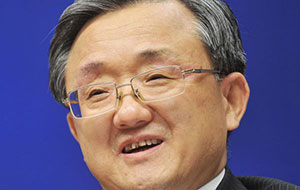May's deal to work with DUP causes anger among political rivals
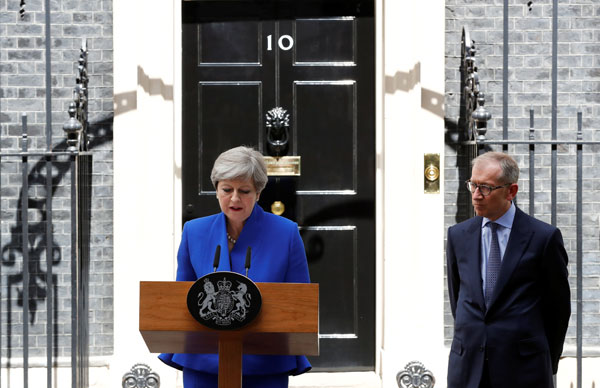 |
|
Britain's Primer Minister Theresa May addresses the country after Britain's election at Downing Street in London, Britain, June 9, 2017. [Photo/Agencies] |
The so called supply and confidence deal, aimed at keeping Prime Minister Theresa May in power at 10 Downing Street, came under immediate attack.
Liberal Democrat Vince Cable, who served as a minister in the previous coalition government, called on details of a deal struck between the two parties to be published.
Cable, beaten in the 2015 election, regained a parliamentary seat in Thursday's general election, which ended with the Conservatives being forced to form a minority government.
The Conservatives won 318 seats, not enough for a majority in the Commons, but buoyed by the 10 DUP MPs. It would give May a working majority.
A confidence and supply deal falls short of a full coalition arrangement, but it means May would have enough votes to carry major issues in the Commons.
The agreement emerged after Gavin Williamson, the Conservative Party's chief whip, spent the day in Belfast holding talks with DUP leader Arlene Foster and key DUP members.
Details of the deal will be discussed by May's cabinet which is scheduled to meet at 10 Downing Street on Monday morning.
A spokesman for May said Saturday night: "We can confirm that the Democratic Unionist party have agreed to the principles of an outline agreement to support the Conservative government on a confidence and supply basis when parliament returns next week.
"We welcome this commitment, which can provide the stability and certainty the whole country requires as we embark on Brexit and beyond. The details will be put forward for discussion and agreement at a Cabinet meeting on Monday."
A number of demonstrations on the British mainland are already being planned to protest at the proposed link between the Conservatives and the DUP.
The Northern Ireland party is officially opposed to same-sex marriages and abortions, both which are legal in the rest of Britain.
Even before the question of a working relationship emerged, the DUP would normally vote with the Conservatives. The DUP is also pro-Brexit, even though the majority of people in Northern Ireland voted remain in last year's EU referendum.
Liberal Democrat leader Tim Farron also called for details of the deal to be published, saying: "The actions of this (Conservative) government will have profound implications for the Brexit negotiations and the future of our country. At such a critical time, the prime minister must be clear with the people about the deal she has stitched up with the DUP behind closed doors."
Tom Watson, deputy leader of the main opposition Labour Party described the proposed arrangement as "a grubby deal for a coalition of chaos."
Alastair Campbell, the former Labour Party spin doctor who worked with former prime minister Tony Blair, hit out at the deal, saying May threatened the peace process in Northern Ireland by negotiating a "sordid, dangerous and distasteful" deal with the DUP.
Blair was a participant in the peace formula which brought to an end three decades of troubles between pro-republican and pro-unionist forces in Northern Ireland.
Professor Jon Tonge from the University of Liverpool, an expert on Irish politics, writing in tomorrow's Observer newspaper about the deal, commented: "The DUP's monopoly status as the friend of the Conservative party means a high price tag. Yet, other than continuing vetoes over same-sex marriage and abortion legalisation, the DUP leadership will not be interested in reinforcing the party's religious outlook. It will come down to what money the Conservatives can offer Northern Ireland. And Conservatives, gay or straight, Catholic, Protestant or atheist, will have to offer plenty."
Earlier Saturday, May's top aides, her joint chiefs of staff both resigned. They quit following reports that a number of Conservative MPs would force a leadership election if the pair remained in their jobs.





